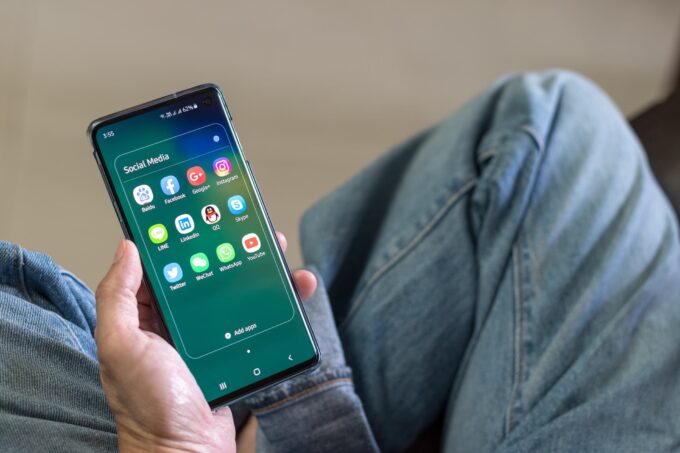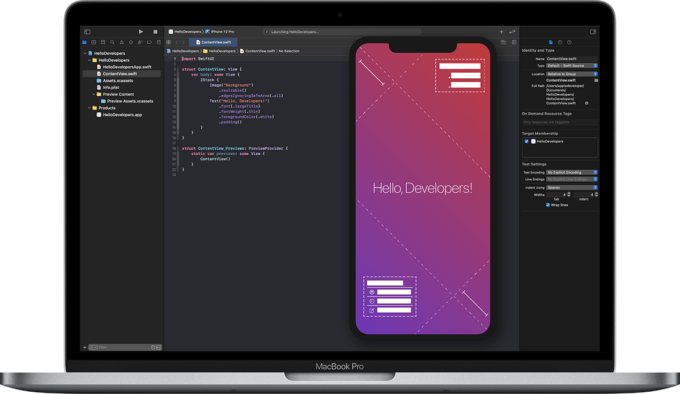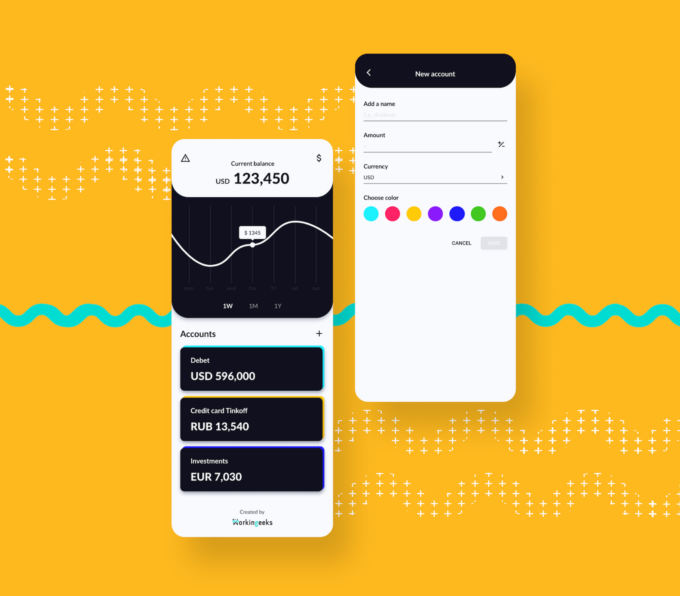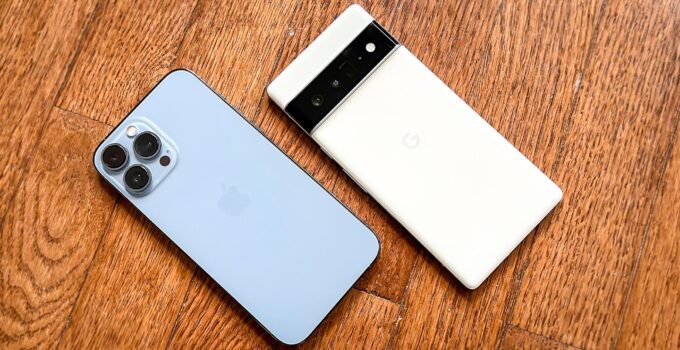Mobile apps have become popular that it’s nearly impossible to think of our lives without our phones. The credit must go to the renowned Android and iOS companies that developed apps who developed feature-rich and robust mobile apps such as WhatsApp, Facebook, Instagram and others. They have become the dominant apps in our lives like never before.
It’s not a stretch to say that the dominance of mobile and smartphones has created a wealth of growth opportunities for the smartphone app design business. For businesses who want to build an app that is in line with their business goals making the right choice, the right platform from Android or iOS platforms is one of the most crucial selections.
Based on Statista the number of smartphone users is currently 3.5 billion people using smartphones around the world. If we look at Android against iOS market share across the globe, Android stands strong with 72.2 percent market share and iOS is a close second with 26.99 percent market share.
Making Android and iOS apps may appear similar to an uninitiated eye but the truth is that both of the two applications have their own specifics. There is always a question about selecting the best OS. This article will go into the differences between two kinds of apps: Android as well as iOS. It will be from the viewpoint of business, i.e. the app’s owners, as well as the app developers i.e. the creators of apps.
Are you ready to start reading? Let’s Begin!
Android Vs iOS A Business Owner’s Perspective
For every business owner, investing in technology for building is thinking about. A business owner should not blindly follow technology trends without considering the effects of his decision and its results.
Their analysis focuses primarily upon market research, the investment of time, development costs for apps as well as the profit at the end. Therefore, without further delay take an examine the differences between Android and iOS according to the requirements of the business owner:
Target Audience

Source: unsplash.com
In any application that is successful the persona of the customer is the primary thing to consider. If we evaluate both principally, we will see the fact that iOS users are loyal to brands and Android users are aware. Android users generally prefer a better quality/price ratio.
Another element to determine the audience you want to target is demographics. For instance, iOS mobile app development is more profitable within the US, Canada, Australia and other countries. This is because of their preference. In terms of Android application development, the citizens from Asia, South America, Central as well as Eastern Europe are the major clans using Android.
But, in light of the important percentage of market shares held by Android and its apps, if a business plans to target an international public, Android application development may be a good choice.
App Development Cost & Timelines
Another crucial aspect in determining the best OS is the amount of time and expense required to create an app for mobile. It is generally accepted that iOS or Android apps have a similar time to develop. However, due to the differing sizes of screens and resolutions on Android devices, android app development could take up to 20 percent longer than the development of iOS mobile apps.
In terms of cost, launching an app for the Android Play Store costs just $25 one-time. However, in the Apple App Store, it will cost $99 per year.
When deciding between these two options it is crucial to think about the timeline and development price.
If we consider the timeline, Android might take a greater portion of the time to develop. However, it’s advantageous in terms of financials and requires a shorter time to publish. For iOS the development process might not take long but the timeframe of publishing and the price can be key aspects.
Monetization details

Source: pinterest.com
The method by which Android or iOS apps earn revenue differs. Although the majority of Android app downloads are absolutely free, revenue is earned by way of in-app purchases and advertisements that are embedded in apps. In the case of iOS developers of apps generally charge for the download of their apps.
Furthermore, iOS apps leverage monetary advantages from features in the app such as bonuses, advertisements as well as premium versions. So, despite having a smaller percentage of users, iOS applications typically make more profits in comparison to Android apps.
When deciding to pick Android or iOS in terms of revenue Both can be profitable since there are many ways to earn revenues from advertisements or sponsorship, affiliate sales, or even subscriptions.
Now now that we know the pros and cons about Android as compared to iOS from a business standpoint, Let’s take a look at developers’ views about Android or iOS development of applications.
Android Vs iOS Perspective of an Application Developer
From the perspective of a developer various factors take place when they are tackling Android application development, as well as iOS development.
Knowing how to use the application’s technical features is a crucial element in the procedure. It allows for the identification of potential issues and assists in making good tech decisions to move forward. So below are the key differences between Android app development and iPhone application development:
Tool for Development

The main distinction that separates iOS and Android in the development of apps is the tools for development and the language used.
In terms of tools for development, in the past all Android applications were built on Eclipse. However, with the introduction of Android Studio, Android Studio by Google Android Studio, the support for Eclipse ended. Android Studio became the preferred environment for android app development. While for iOS applications, XCode is used.
Additionally, for app programming languages, such as Android development, programmers employ Java, Kotlin, and C++. Additionally, iOS developers have two programming languages to pick from: Objective-C and Swift.
The complexity of Development
It’s true that this is subjective as a lot of things influence the complexity of developing an application. The process of developing an android app comprises three stages: design development, and testing.
With regards to developing Android apps with a vast variety of devices, each with its own screen dimensions as well as aspect ratio. It’s more complicated than iOS. In contrast, iOS applications are intended to be compatible with a range of devices. This means that iOS application creation is much simpler. Read more at markovate.com
UX UI Differences

Source: workingeeks.com
Android applications and iOS apps are both different in their ways of approaching UX design and UI. Every OS has its own style of design that is influenced by two major companies who created the apps. Its Android application design principles include Material Design, which caters to the hardware aspect more than the aesthetics.
We refer to Apple’s iOS guidelines for app design the Human Interface Design. It’s a simple and easy-to-use design that gives users the best user experience. Both apps adhere to simple and concise design principles that allow users to enjoy an app that has an attractive and attractive interface.
Conclusion
There are various factors to consider when it comes to selecting a platform on which to build your first app. Your decision will be influenced by your target audience, development budget, timing, and monetization strategy.
In a word, choose Android if you want to reach a wider audience, have more customization options, and submit your app to the store faster. If you’re going to make more money per user, appeal to a younger audience, and have a more straightforward development process, go with iOS.
Most firms, in our experience, want assistance in deciding which platform to target initially. A meeting with a reputable android app development company could help you get started on your mobile solution. Start with a quick discovery meeting and layout anything you have, even if it’s just a concept or a project vision.
Markovate has extensive experience developing iOS and Android mobile apps. Do not hesitate to contact us to discuss your potential app and help you avoid significant hazards while selecting the most appropriate platform.







